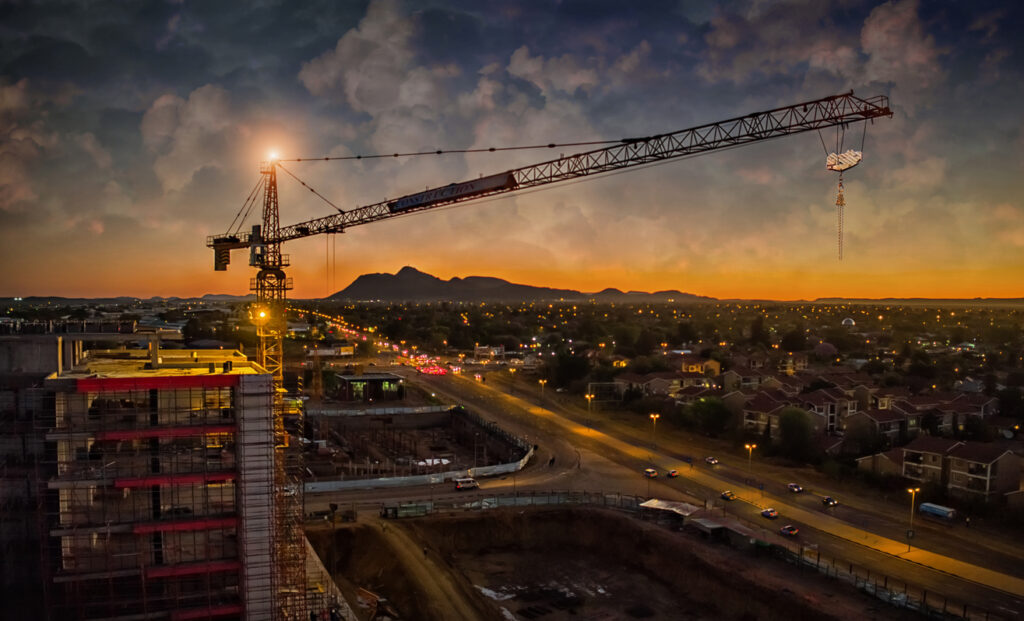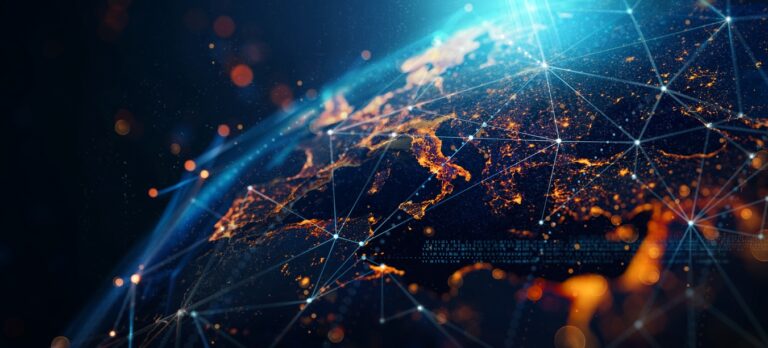By Paul Okumu and Daniele Fattibene
The launch of the Global Gateway Initiative in December 2021, as part of European Union’s commitment to scaling up the G7’s Partnership for Global Infrastructure and Investment (PGII) has raised expectations, as well as anxiety among the EU’s international partners. For Africa, the Global Gateway soon turned into the EU’s flagship geopolitical and geoeconomic initiative, with the aim to mobilise up to 150 billion euros by 2030 in physical and digital infrastructures, as well as to invest in energy transformation, strategic transportation networks, health, education, and research.
Development and geopolitics
The main objectives embedded in the Global Gateway are boosting investments to leverage wider economic and geopolitical projects on the one hand, and fostering the use of private capital to sustain development cooperation purposes on the other. This is not new, as both members of Team Europe approach such as European Development Finance Institutions and the European Investment Bank (EIB) have been supported by both the EU and the individual member states to offer private sector funding for economic projects that are also developmental in nature. What has raised concerns among African partners is whether the EU is now shifting its policies to a more aggressive EU interest-driven use of its resources, including development funding, to reach pure economic gains. Looking at the flagship projects for 2023 and 2024 these apprehensions appear apparent for African observers, as the bulk of the resources are directed to key economic sectors that may not necessarily coincide with African partners’ priorities as well as projects that are purely in line with the EU’s strategic corridors for accessing critical minerals to sustain the EU’s Green Agenda. As an example, the EIB’s 2023-2025 operational plan makes it clear that “priority will be given to initiatives promoted together with the European Commission, such as Team Europe and Global Gateways.”
In the past three years, a growing list of flagship projects have been associated with the Global Gateway, with Africa remaining its centre of gravity. As of May 2024, 44 and 72 flagship projects were identified in Africa for 2023 and 2024, for a total of 116 in Africa, over a total of 225 projects worldwide. It is projected that at this rate there will be over 200 projects in Africa alone by the time the curtains come down (but most likely also beyond that deadline) on the Global Gateway in 2030. Although one of the biggest projects also discussed by single EU Members initiatives in Africa (e.g. Italy’s Mattei Plan) at this moment is probably the Lobito Corridor, there are also other recent initiatives focused on digital connectivity and health development in East Africa, new cybersecurity partnerships in West Africa, green hydrogen projects in South Africa or the expansion of rail corridors in East Africa.
The long term vision
Understanding the EU’s outcome of the Global Gateway is difficult, yet crucial to assess how projects are selected and implemented to be fully in line with the UN 2030 Agenda, Africa’s Agenda 2063 as well as to achieve an EU open, sustainable and assertive trade policy.
Africa is a region of strategic importance to the EU due to the economic growth rates registered in several countries, as well as its richness in a series of key natural resources. African governments know that critical raw materials are essential to support what they consider a controversial Green Deal Agenda and the EU’s broader green industrialisation and digital transformation objectives. It is true that the EU remains Africa’s leading trade partner, absorbing 33 percent of its exports to non-African countries and accounting for 31 percent of its imports from non-African countries in 2020. However, a recent analysis shows that “the EU trade policies with Africa are not efficient from a development perspective”, as well as “highly asymmetrical” as “the EU accounts for a much larger share of Africa’s exports than Africa represents in the EU’s exports”, whereas “Africa’s exports to the EU are overly concentrated in fuels and metals”.
This poses doubts on whether the Global Gateway can effectively contribute to achieving the ever elusive “partnership of equals” with Africa. The EU has also not hidden the fact that its aim is to counter China’s Belt and Road initiative (BRI), with the President of the EU Commission making it clear during a December 2022 meeting of the Global Gateway Board that “Global Gateway is above all a geopolitical project.” That is why, for some, the Global Gateway still looks like a “global counter project”, mainly aimed to increase the EU’s poor global visibility vis à vis other competitors’ strategies such as the Chinese Belt and Road Initiative, but also the US ““Build Back Better” initiative.
Against this backdrop, African governments warn that some of the Global Gateway’s core projects could spur a looming war for minerals rather than bringing development to the continent. This does not come as a surprise, as green transition requires a huge procurement of critical raw materials which are not available in the EU territory. According to the EU Council 27% of the EUs phosphate rock comes from Morocco, 63% of the aluminium is imported from Guinea, 35% tantalum is sourced from the DRC, whereas South Africa provides 41% of EU’s needs for manganese, 71% of the EU’s needs for platinum and an even higher share of the platinum group metals iridium, rhodium and ruthenium.
The implementation
Surveys conducted in 21 out of 34 countries where Global Gateway projects are being implemented highlight that civic actors still have a very limited (if not any) knowledge of the contracts signed nor an indication that they or legislators were involved or even aware of the projects. In this sense, the signing of an Memorandum of Understanding with the Democratic Republic of Congo, just a month before the country’s Presidential elections, or the recent mining agreement with Rwanda elicited protest by the Nobel Peace Laureate Dennis Mukwege who argued that “European executive is not only reaching the height of cynicism in terms of geostrategy, but is once again illustrating a policy of double standards that undermines the credibility of international institutions.” This lack of transparency has reinforced concerns that both the motive as well as the method employed by the EU and the other Team Europe members may cause more harm than good, if not duly jointly designed, agreed, implemented etc with local African partners.
Therefore, three years after its launch, several challenges remain on how to effectively implement these projects, without replicating previous models of partnerships that recently fuelled frustration and resentment towards patronising and even neocolonial approaches.
First, recent studies claim that in spite of significant progress, the Global Gateway still tends to remain a scattered array of projects, which, in many cases, is not accompanied by a sufficiently clear political dialogue to drive real strategic change and has insufficient linkages to Europe’s domestic economic and political agendas and development priorities.
Second, the closed nature of the Global Gateway decision-making processes has led to an absence of information that would enable assessment of the full impact of the Global Gateway, especially in relation to the loans needed and concessions made. This lack of transparency is imputable also to African executive arms, who do not communicate properly these projects with their constituencies.
Third, some analyses warn that focusing too much on EU-pushed values and norms risks being counterproductive and even fuelling “double standards” narratives. Despite the EU’s rhetoric that its financing is superior because it minimises the risk of burdening the African countries with excessive debt, to date it is far from clear what the credit conditions of individual projects in the Global Gateway look like, since they have not been publicly disclosed.
Finally, it is not clear yet how the EU or its members will fully achieve a co-creation with partners, by involving local private companies, Civil Society Organizations as well as regional and subnational governments – the Global Gateway Governance and Implementation structure has no representation from partner countries.
Need for a stronger local ownership
Civic actors have an important role to play, as they can mobilise citizens to ensure accountability of the Global Gateway projects at three levels. First on financing they are important watchdogs able to assess whether the Global Gateway projects do not leave the continent with more debt than it currently has. Secondly, civic actors are essential to push institutional actors to boost local ownership of these projects, making sure that they bring profits to both the African and European private sector, in line with the EU’s Global Gateway Values. This is essential to ensure that the Global Gateway strengthens a partnership of equals, making sure that the various projects are structured under a mutual beneficiation agreement and implemented in ways that advances the interests of the two continents. Third, ensuring a greater ownership for civic actors would not only lead to a higher sustainability, hence guaranteeing also that EU objectives are met in the long term, but would also set a clear difference with the Chinese BRI projects, where civic actors are essentially not involved.
The Global Gateway can be important for Africa, if it addresses the core issues of Africa’s potential as outlined in AU’s Agenda 2063. Needless to say, a larger and less fragmented African market can be extremely beneficial for EU companies and would also mean greater leverage on regulatory standards that can then spread globally, increasing the bloc’s “normative” power. But this is best served by supporting and rallying efforts towards the Africa Free Continental Trade Agreement, not by new EU initiatives. Instead the EU has been accused of undermining AFCTA through these parallel eurocentric agreements.
The next Commission
The Global Gateway will remain a key pillar of the new EU Commission’s foreign policy. The question is whether the next political cycle will manage to provide it with a clearer long-term vision which is not only linked to the provision of CRMs for the EU’s green transition, but that also gives the EU and its members the right tools to effectively implement the different projects and assess their impacts on the ground and finally ensures a better level of co-creation with African governments, the civic actors and the private sector.
The Global Gateway can still be an opportunity for the EU to rekindle its relations with Africa, working closely with local governments to make sure that trade relations are not extractivist (reversing the so-called “resource curse” affecting some many African countries) but are functional to speed up green industrialization, create quality jobs, eradicate poverty and support human development. The EU has the right tools to use its resources to strengthen trade relationships that allow Africa to move away from a dependency on raw materials, and ensure policy coherence among “Team Europe” members, but also loans granted by the European Investment Bank so that there is synergy in engagement. So far, little improvement was achieved on these three aspects and the next EU Commission has a great opportunity to address these criticalities, improve the governance of the plan and make sure that it delivers and rebuilds trust among its – very sceptical – African partners.
Paul Okumu is Head of Secretariat at Africa Platform and also sits in the Steering Committee of the EU Global Gateway CSO Advisory Board. Daniele Fattibene is Coordinator of the European Think Tanks Group. The authors wish to thank Iliana Olivié, Niels Keijzer and María Santillán O’Shea for their kind revision of the blog.



